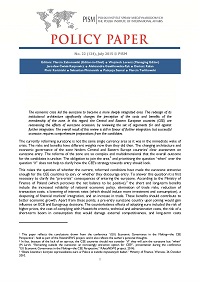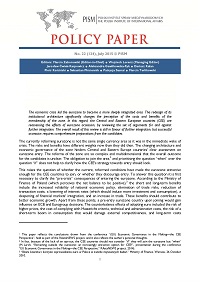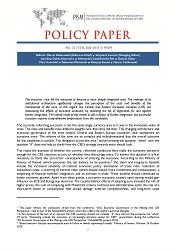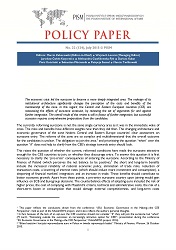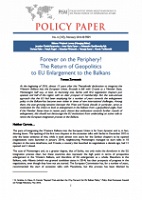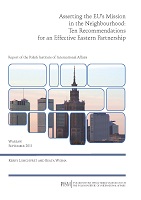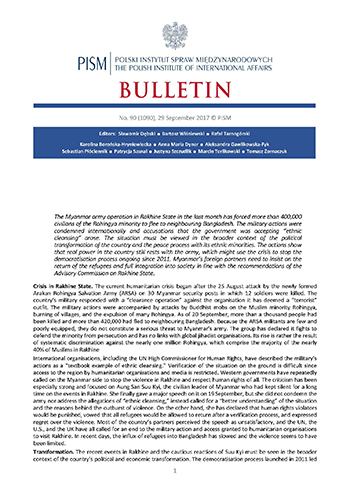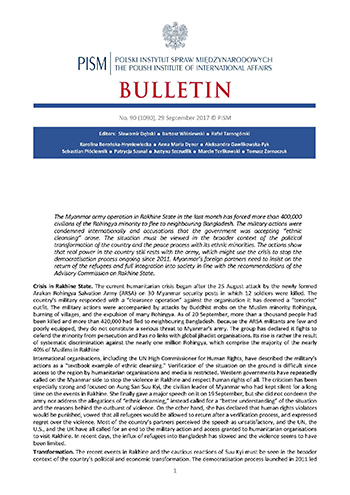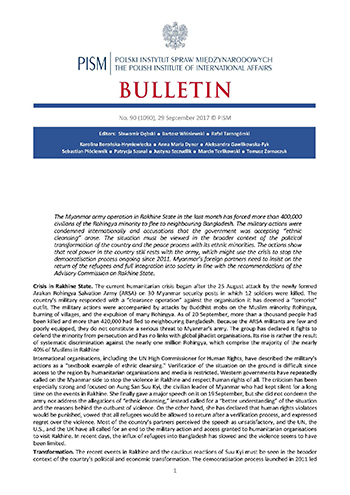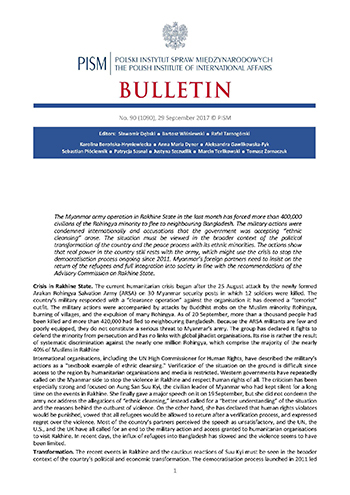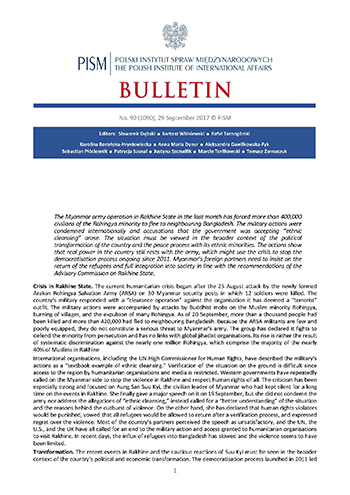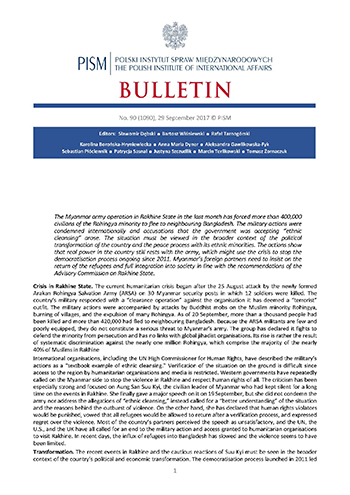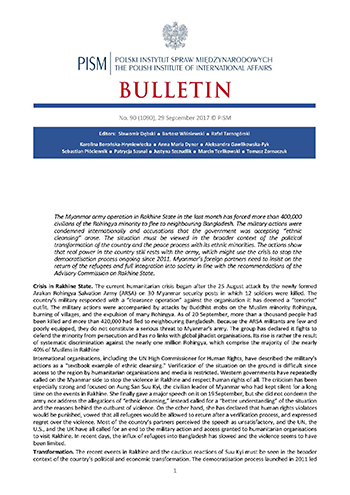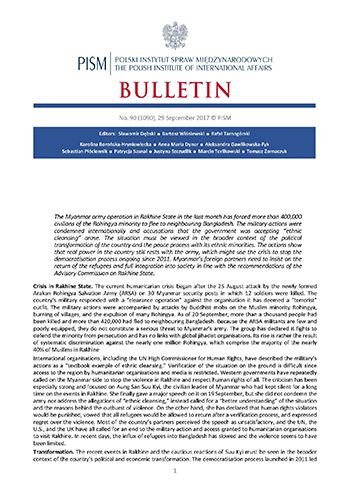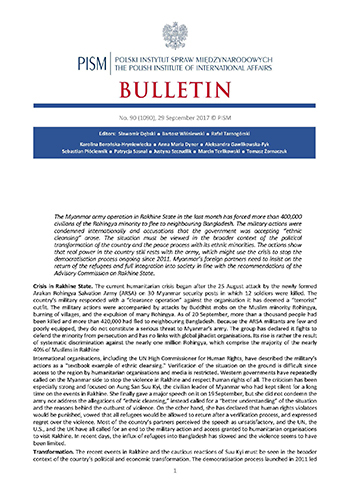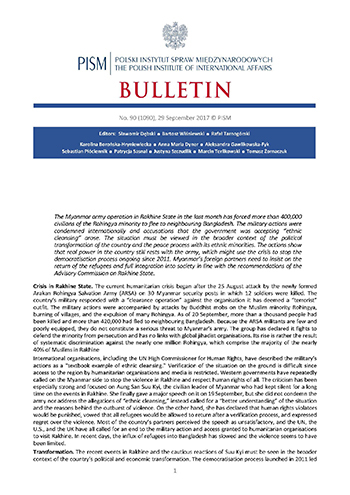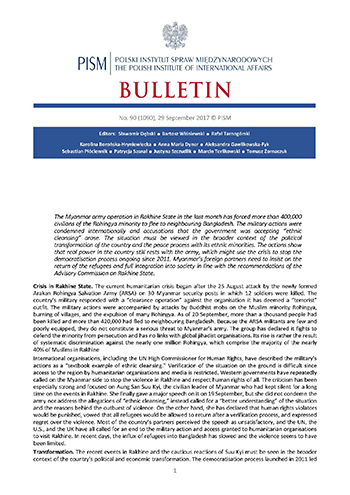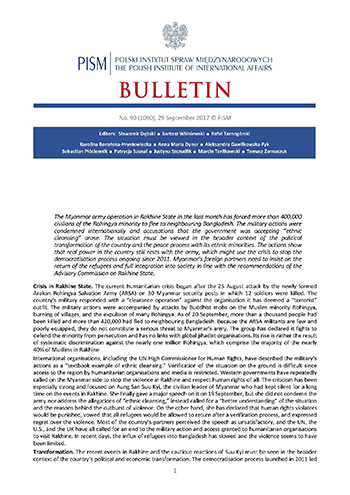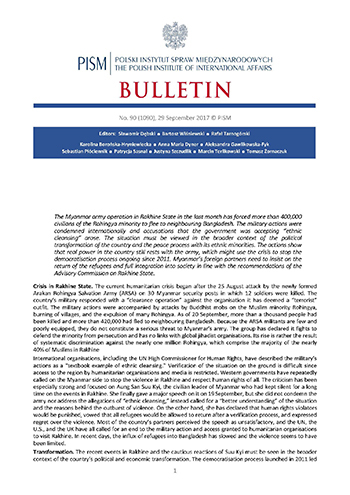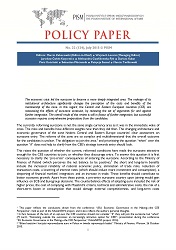
№059: Democratic Opposition Alone Will Not Bring Democracy to Egypt
The creation of a new, united secular opposition group in Egypt (the National Salvation Front, or NSF) in November 2012 met with a sigh of relief in Europe and the U.S. It is viewed as the only democratic force in a country torn between Islamism and reactionism. The NSF itself, however, represents but a fraction of society, lacks homogeneity, and seems to be driven by basic political motivations rather than a sense of responsibility, just like the Muslim Brotherhood (MB) and its affiliates. More than two years after the fall of Mubarak and a year after the first democratic presidential elections in Egypt, only national reconciliation can save the country, which has seen a series of unconstitutional developments, remains without a parliament, and is on the brink of bankruptcy. Without reconciliation, all political parties, including NSF, will continue to lose support.
More...
